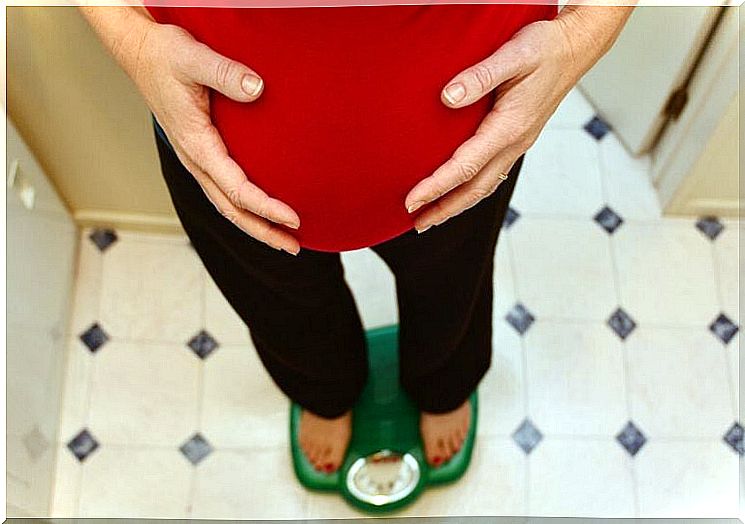Is Obesity Dangerous During Pregnancy?

During pregnancy there is hardly a part of the body that is not affected in one way or another by changes. Weight gain is one of the most obvious signs. On average, a pregnant woman gains between 9 and 13 pounds . In this article, we take a closer look at the effects of being overweight during pregnancy.
Women who put on above-average weight during pregnancy have an increased risk of not reaching their original weight after giving birth.
Similarly, women who were slightly overweight before pregnancy and who continue to gain weight during pregnancy are at increased risk of obesity and the associated health risks.
It is therefore very important to take care of your health and that of your baby. For both, it is fundamental to control weight to reduce risks.
What Are The Risks Of Obesity During Pregnancy?
Obesity during pregnancy can have negative consequences for both the mother and the fetus. Learn more about these risks:
Health risks to the mother
The mother is at risk of developing gestational diabetes or preeclampsia. An overweight mother is also more likely to have high blood pressure problems during pregnancy. In addition, the risk of miscarriage in the first part of pregnancy is even greater. If you are overweight, a caesarean section is required more often.
Health risks to the baby
The greatest risks to the fetus are related to congenital abnormalities. Obesity during pregnancy also increases the risk of premature birth and neonatal complications.

How to better control weight gain during pregnancy
Pregnancy gives you the opportunity to reflect on your lifestyle. It is also a time when you become aware of your daily habits and how they could affect your health and that of your child.
To protect your child from the risks of obesity, nothing is better than a healthy and balanced diet.
Remember, extreme diets are not recommended during pregnancy. Diets reduce the absorption of nutrients that your baby urgently needs in order to develop properly. Overeating is also unhealthy during this time. You should find a healthy balance and seek advice from your doctor.
We have prepared some dietary recommendations for you to help you control your weight during pregnancy:
1. A varied breakfast
Try to have a healthy breakfast in the morning that has all of the important nutrients you need. Of course, you have to think about your baby as well!
Remember, this is the most important meal of the day that you need to recharge your batteries. Breakfast should include a dairy product, drink, some cereal, and fruit.
You should definitely not skip breakfast, as it provides you with important nutrients for the whole day.
2. Eat small portions more often
You can eat six times a day instead of three, but reduce the portions and spread them out over the entire day.
3. Choose fresh and varied foods
A balanced diet is the most important thing. Eat a variety of foods and avoid unhealthy foods. You can protect the health of your child and your own health as well.
Don’t forget to eat five servings of fruits and vegetables a day. In addition, you should be careful not to consume too much high-fat food.
4. Prepare a light dinner
In contrast to lunch , dinner should always be light and balanced. We advise you not to eat too late to avoid heartburn or other discomfort during the night. This will make digestion easier and you will sleep better too.

5. Be physically active
Remember, it is important to be physically active while you are pregnant. This has both psychological and physiological benefits for the expectant mother and her baby. Hiking and swimming are highly recommended during pregnancy, among other things.
Eventually, if you do find that you are overweight during and after pregnancy, you should discuss this with your doctor and a nutritionist. They can advise you and find an individual solution for you.









